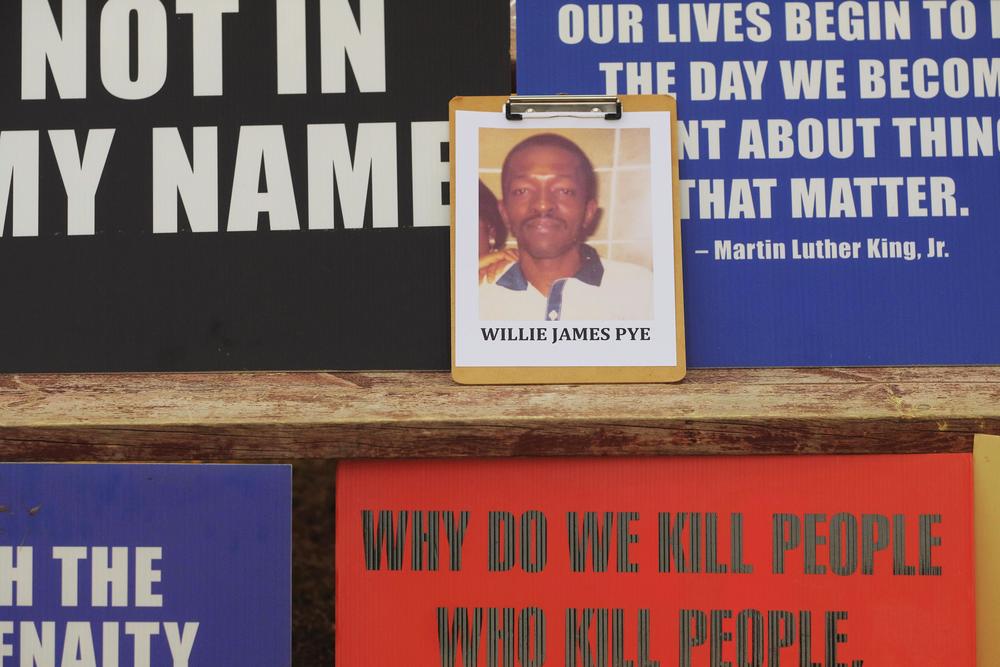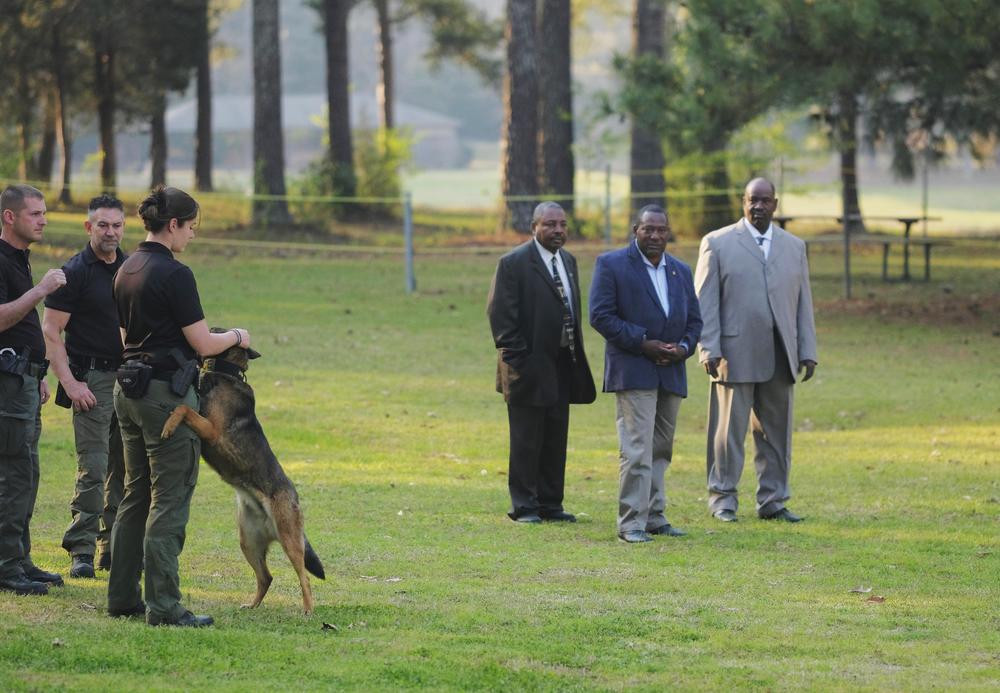
Section Branding
Header Content
Georgia ends its pandemic moratorium on executions by killing Willie Pye
Primary Content
The state of Georgia ended its pandemic-era moratorium on executions Wednesday by putting to death Willie Pye, convicted of the 1993 rape and murder of Alicia Yarbrough.
Pye died at 11:03 p.m., some four hours after the planned start of his execution.
The delay came as Pye’s attorneys failed to convince the U.S. Supreme Court to stay his execution. That followed a failed clemency hearing the day prior before the Georgia Board of Pardons and Paroles.
In his brief submitted to the Supreme Court in opposition to a stay for Pye, Georgia Attorney General Chris Carr retold the details of Pye’s crime in which he and two co-defendants were said to have raped Yarbrough before taking her life.
Pye’s execution was the 77th since Georgia resumed the practice in 1976. Only a dozen people have seen their death sentences commuted over that same time.
Alicia Yarbrough was killed in Spalding County where Griffin is the county seat. Griffin Daily News managing editor Karen Gunnels agreed to be one of four media witnesses to the execution.

“I felt like it was owed to the family, owed to the county for someone local to cover it," Gunnels said. "It was peaceful, if that makes any kind of sense. He came in very solemn. The guards were very solemn.”
Pye was killed through lethal injection of pentobarbital which other witnesses said took no longer than 10 minutes.
“I couldn’t tell when it actually began,” Gunnels said.
“Mr. Pye did not move much through the procedure,” said Atlanta Journal-Constitution reporter Jennifer Peebles. “After a few minutes you saw no more movement from him.”
Peebles said a total of three white-coated people she presumed to be medical workers declared Pye dead shortly after.
Pye also chose three witnesses of his own, including Eddie Roberts.
“He just called us, one of us to be here for his execution,” Roberts said. "We have been friends with him all his life ever since he was 5 years old. So he just said, if anybody be here, he wanted us to be here to witness it."
Roberts said it was three weeks of conversation with Pye before he made up his mind to honor his friend’s final request.
“Well, it wasn't easy, put it like that,” Roberts said of the process of making up his mind.

As is the case at most executions at Georgia Diagnostic Prison, a small group of death penalty opponents held vigil during the lead up to Pye’s death. That included M Cathy Harmon-Christian
“We are killing someone on this beautiful, life-giving day,” Harmon-Christian said. “I hope everyone feels something about this.”
When the protesters sang "Amazing Grace" together, dedicated to Kelly Gissendaner who was executed in 2015, they were nearly drowned out by the sound of cars passing the prison on Interstate 75.
Tommy Whitman stayed with the protesters to the end. He had also testified on Pye’s behalf in his clemency hearing the day before.
“I've known him since we were kids,” Whitman said. "He’ll break in a house. He might steal your car. But he don't kill nobody."
Whitman said he and Pye shared a hard life in and out of jail when they were kids.
“I was young, he was young, you know,” Whitman said. “I was in jail when I was 17, and I just kept going back and back and back and back.”
But past a certain age, Whitman said that ended.
“I straightened my life up.”
Whitman said he believed someone like Willie Pye, convicted of murder, could change, too.


